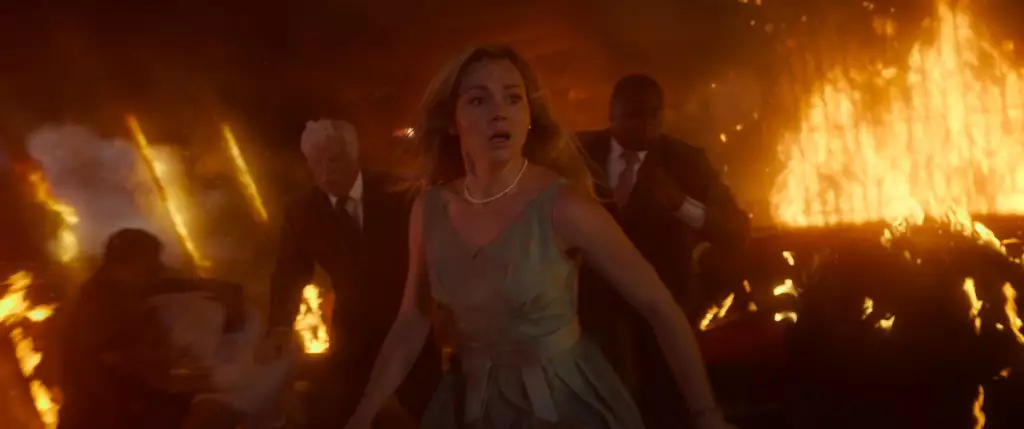There’s an undeniable intrigue surrounding the revival of the Final Destination franchise, a series that offers an unusual blend of horror and dark humor. As excitement bubbles following a 14-year hiatus, fans are treated to a sneak peek of Final Destination: Bloodlines, and the enthusiastic reception seems to imply that audiences are primed for this resurrection. But why? Is it nostalgia, or are the themes of fate and mortality that this series encapsulates resonating in today’s societal landscape?
The Burden of Expectations
Richard Brener’s teasing remark on the Oscars belies a deeper truth: expectations are dangerously high, especially for a film that flirts with death’s inevitability. With a trailer boasting 178.7 million views, it appears there’s a fervent appetite for the macabre tales of those attempting to outsmart fate. However, one cannot ignore the weight of this franchise’s historical legacy—having grossed over $660 million globally. Achieving anything close to that might be far less about the actual content and much more about the audience’s yearning for escapism, disguised as heartbreaking humor.
A Bizarrely Captivating Narrative
The plot, centered around brothers Bobby and Erik, traverses the delicate line between comedy and horror. It’s a decision fraught with risky implications. When Bobby, grappling with his life-threatening peanut allergy, faces a vending machine conundrum in a hospital, the absurdity is both comical and unsettling. Lines like “If I am going out, it’s not going to be on those unsalted bitches” encapsulate a generational gut reaction to dire situations, effectively questioning what it means to confront death head-on, even in jest. Yet, one must wonder: does this brand of humor trivialize the harsh realities of life and death?
Artistic Decisions and Direction
The film, directed by Zach Lipovsky and Adam B. Stein, is built on screenwriters Guy Busick and Lori Evans Taylor’s backdrop, anchored by Jon Watts’ compelling vision. The inclusion of familiar characters created by Jeffrey Reddick offers a nostalgic depth, but nostalgia can be a double-edged sword. While it invites returning fans, it risks alienating a new generation that may not connect with 20-year-old plot devices. The challenge lies in delivering an original experience while paying homage to the franchise’s roots—a balancing act that is fraught with potential pitfalls.
The Allure of Death’s Design
Final Destination has always ingeniously tapped into a primal fear: the unknowability of fate. With its intricate depictions of death’s craftsmanship, this incarnation claims to delve deeper into not just bodily demise, but the psychological toll it takes on those left behind. The camaraderie between Bobby and Erik serves as a vehicle to explore these themes, but can this franchise still evoke genuine terror in a world desensitized to horror tropes? As we bear witness to their comedic attempts to cheat death, it beckons an uncomfortable reflection of our own relationship with fear and mortality.
In a world grappling with existential dread amidst global turmoil, Final Destination: Bloodlines risks being both a reflection of our society’s endurance and an acknowledgment of our refusal to confront death in earnest. Hence, the impending release brings an air of uncertainty, as fans must decide—are we craving resolution, or simply another tale of the inevitable?

